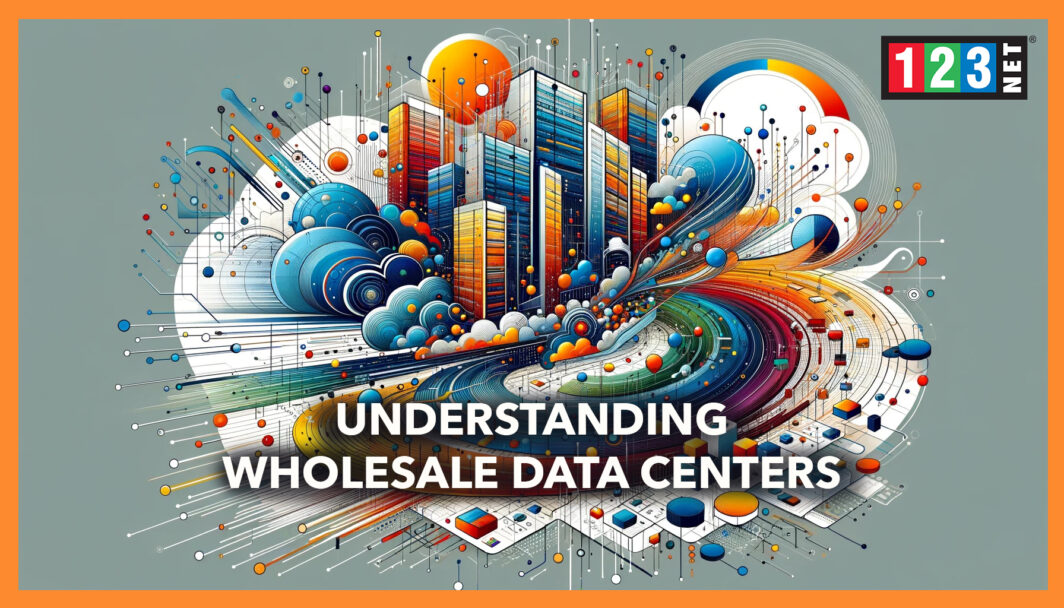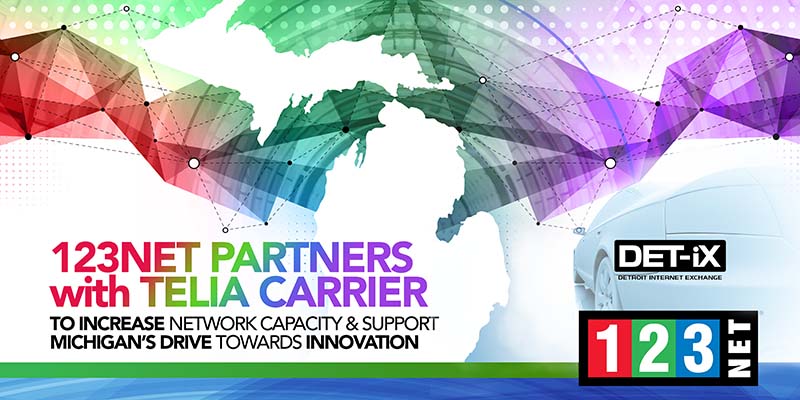
Introduction
In the contemporary digital landscape, data centers are the critical infrastructure underpinning the vast expanse of the internet, cloud computing solutions, and the operational frameworks of large-scale enterprise IT systems. Wholesale data centers have risen to prominence, offering a vital resource for businesses that demand extensive data storage. These specialized facilities distinguish themselves from smaller, retail data center models by providing expansive leased space and dedicated infrastructure. This arrangement ensures an unparalleled blend of scalability, power availability, and connectivity options.
This article aims to delve deep into the essence and strategic importance of wholesale data centers. It will explore their evolutionary journey from niche facilities to cornerstone assets of the digital economy, highlight their defining features.. As businesses continue to grapple with the challenges of management and processing demands, wholesale data centers stand out as pivotal enablers.
The Evolution of Data Centers
Over the last several decades, the data center industry is shifting from the traditional retail models to more expansive configurations. This change has been primarily driven by the escalating need for vast amounts of data storage processing capabilities. In the early stages, data centers typically catered to the needs of individual businesses, providing limited space and resources. However, the digital age is cloud computing adoption, and an insatiable demand for high-density computing power. These developments necessitated a fundamental transformation in the way data centers operate, leading to the emergence of wholesale data centers.
Wholesale data centers are meticulously engineer to accommodate the needs of large-scale operations, distinguishing themselves through their substantial power capacity and advanced cooling systems. These features are critical in maintaining the reliability and performance of mission-critical applications, ensuring they operate without interruption. By offering dedicated spaces that are customizable to meet the specific requirements of businesses, wholesale data centers provide a robust infrastructure that supports the continuous growth and evolution of digital technologies. This shift towards wholesale models reflects the industry’s response to the complex challenges of the modern digital landscape, highlighting the importance of scalability, reliability, and efficiency in data center design and operation.
Key Features of Wholesale Data Centers
Wholesale data centers stand out in the digital infrastructure landscape, offering unique features tailored to meet the expansive requirements of large enterprises and cloud service providers. One of the most significant attributes of these facilities is their Space and Power Capacity. They provide extensive square footage to accommodate a wide range of IT equipment, coupled with a robust power infrastructure designed to support the demands of high-density computing. This ensures that businesses can scale their operations without worrying about physical space limitations or power constraints, facilitating seamless growth and expansion.
Connectivity and Network Ecosystem
Connectivity and Network Ecosystem are equally vital components of wholesale data centers. These facilities operate in a carrier-neutral environment, which is fundamental for clients that depend on diverse and reliable internet services. By allowing tenants to connect with a multitude of Internet Service Providers (ISPs) and cloud services, wholesale data centers guarantee optimal network performance, minimal latency, and enhanced redundancy. This interconnected ecosystem enables businesses to maintain high levels of operational efficiency and ensures that they can provide their services without interruption.
Security and Compliance
Security and Compliance Standards are at the forefront of wholesale data center operations. Adhering to rigorous security protocols, these centers implement comprehensive measures to safeguard data integrity and ensure compliance with global regulations. This encompasses a range of strategies from advanced physical security measures, such as biometric access and surveillance. Furthermore, achieving certifications like ISO 27001 and SOC 2 demonstrates a data center’s commitment to maintaining the highest standards.
Cooling Systems and Redundancy
Cooling Systems and Redundancy are meticulously designed to create an environment that supports optimal performance of housed IT equipment. Effective cooling solutions are critical in managing the heat generated by high-density computing, thereby preventing equipment failure and ensuring longevity. Redundancy in power and cooling infrastructures guarantees that, in the event of a system failure, backup systems will immediately take over, thus ensuring continuous operation. These features, aligned with stringent Service Level Agreements (SLAs), underscore the reliability and trustworthiness of wholesale data centers, making them an indispensable asset for businesses in the digital age.
Benefits of Opting for Wholesale Data Centers
Cost Efficiency and Scalability
Opting for a wholesale data center presents a multitude of benefits, key among them being Cost Efficiency and Scalability. This model offers businesses the opportunity to lease expansive spaces at significantly lower costs than traditional retail colocation options. This arrangement benefits organizations needing large-scale data storage, offering expansion flexibility without high costs.Scalability allows efficient adaptation to tech and business changes, making wholesale centers cost-effective for long-term strategies.
Security and Reliability
Moreover, Enhanced Security and Reliability are fundamental advantages of wholesale data centers. Facilities use top security, including surveillance, biometrics, and cyber protocols, to protect data from threats. With infrastructure for maximum uptime, centers ensure uninterrupted operations, offering reliability and client peace of mind.
Customization and Control
Customization and Control further distinguish the wholesale data center offering. Clients can design and manage their spaces in wholesale data centers, unlike in retail colocation. This control optimizes IT for performance, efficiency, and compliance, promoting operational excellence. Customizable spaces in wholesale centers allow tailored solutions, boosting business agility and competitiveness.
Challenges and Considerations
Commitments and Contracts
One of the primary considerations is the aspect of Long-term Commitments and Contracts. Engaging with a wholesale data center often involves entering into extended agreements, which can span several years. This necessitates thorough planning and forecasting from businesses to ensure that their future infrastructure needs align with the terms of the lease. Such long-term commitments require a strategic approach to capacity planning.
Operational and Management Responsibilities
Another challenge lies in the Operational and Management Responsibilities that are inherent to leasing space. Unlike retail colocation where many operational tasks are handled by the provider, the lessee assumes a greater degree of responsibility for managing the IT infrastructure. This includes everything from the deployment and maintenance of hardware. Consequently, businesses must be preparing to invest in skilled IT to oversee these critical functions.
Market and Location
Market and Location Factors also play a crucial role in the decision-making process. The geographical location of a data center can significantly affect its desirability and functionality. Moreover, the risk of natural disasters in choosing the location must be carefully evaluated. Areas prone to earthquakes, floods, or other natural calamities can pose a risk to the continuity of operations. These considerations are essential in selecting a data center location that balances operational needs with risk management strategies.
FAQs Section
- What differentiates wholesale data centers from retail data centers? A: Wholesale data centers offer large, dedicated spaces with the ability to customize infrastructure, unlike retail centers that provide smaller, shared spaces with less flexibility.
- How do wholesale data centers contribute to business scalability? A: By offering vast spaces with scalable power and cooling resources, wholesale data centers allow businesses to expand their IT infrastructure efficiently as their needs grow.
- What are the typical contract terms for a wholesale data center lease? A: Contracts often span several years, providing stability but requiring long-term planning and commitment from businesses.
- How do wholesale data centers ensure data security and compliance? A: Through rigorous physical security measures, adherence to international compliance standards, and robust data sovereignty practices, ensuring data is protected and regulatory requirements are met.
Conclusion
Wholesale data centers play a pivotal role modern digital infrastructure, underpinning the growth and resilience of businesses. These facilities are equipped with a comprehensive suite advanced colocation options, cloud services integration, and robust disaster recovery capabilities. The demand for the high-capacity, flexible infrastructure continues to surge. This trend highlights the critical role these centers play in supporting the seamless operation and expansion of digital services. This is making them indispensable in the journey towards a more connected and technologically advanced future. Their significance in facilitating connectivity, underscores their growing importance in the architecture of tomorrow’s technology landscape.




